'I just designed a destruction of a life'
- Published
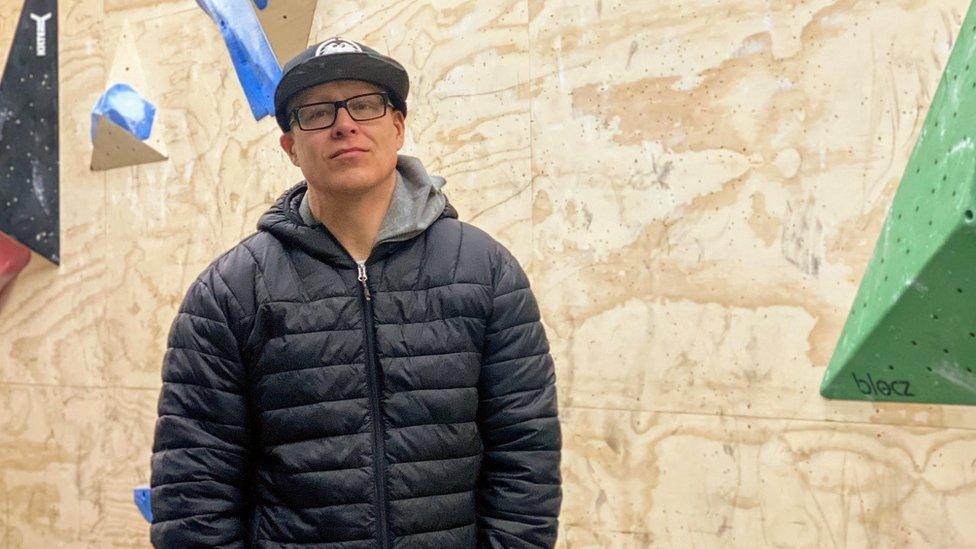
Ian's story is one of recovery and redemption
The BBC's weekly The Boss series profiles different business leaders from around the world. This week we speak to Ian Powell and Jackie Hueftle who own US firm Kilter Grips, which makes holds for climbing walls.
When Ian Powell hit rock bottom very hard, it was in life rather than while climbing a cliff face.
By the early 1990s he had made a name for himself as a professional climber, and had taken part in global competitions, but by 2010, aged 39, he was a homeless drug addict in Denver, Colorado.
Addicted to both crack cocaine and crystal meth, he would go through the agonies of withdrawal while hiding away in commercial waste containers.
Stealing to fund his habit, he was eventually arrested and sent to prison for credit card fraud.
"I just designed a destruction of a life," says Ian looking back.
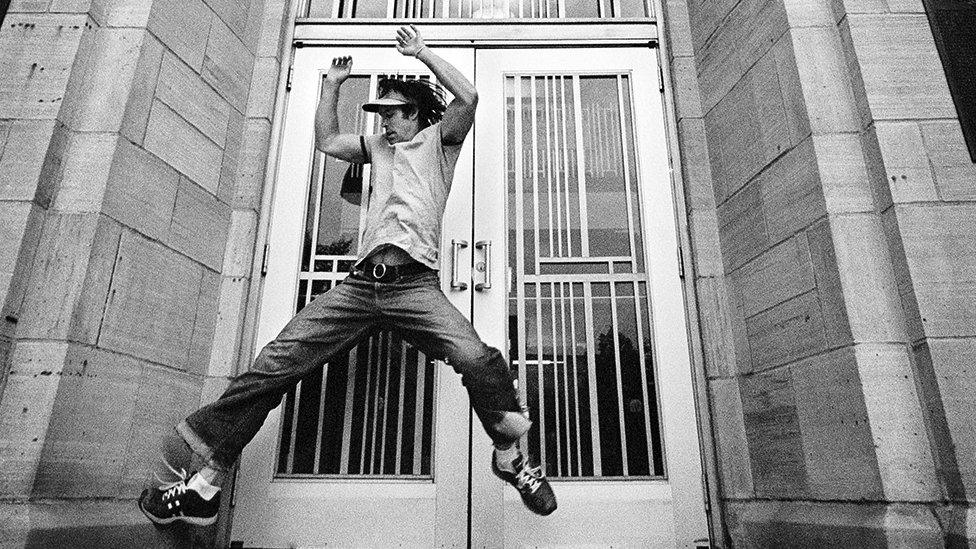
Ian, pictured here as a younger man, says he threw away eight years of his life
Born in 1971 in Atlanta, Georgia, Ian remembers that his love of climbing started very young, when he was three or four.
But it was a difficult childhood, in that his father who was an alcoholic took his own life when Ian was 10.
Ian and his mum then moved to Texas, where he really started to get into climbing as a teenager.
He climbed competitively, even travelling with the US national team at one point, before dropping out.
"I wanted to be a contender, but I was just not destined to make a living as a professional," says Ian. "I still wanted to be involved in the industry, so I decided to do something else."
With a background in design and fine art, that something else was making holds for indoor climbing walls.
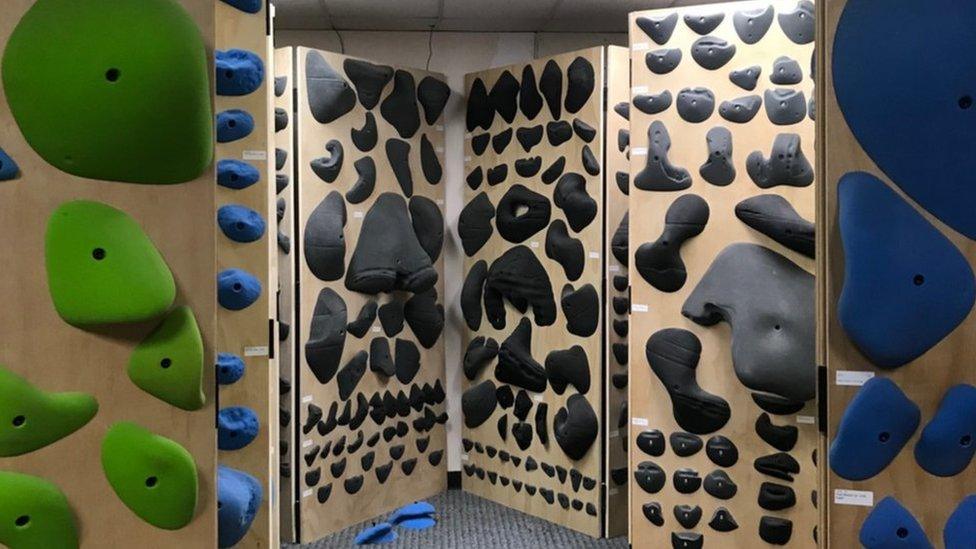
Ian is a world-renowned designer of climbing holds
In 1996 he co-founded eGrips, which was quickly complimented for its innovative styles, shapes and use of materials for holds. The money started coming in.
Ian is also a talented sculptor, and at the same time he started selling his art creations for tens of thousands of dollars. This led to his temptation to take drugs.
"I'd never really been around hard drugs, but then I found I could sell whatever I wanted," he says. "I had money lying around, loose bundles of cash, and I discovered cocaine and other drugs."
He says he wasn't equipped to deal with the success and the lavish praise thrown his way - and so his drug use spiralled out of control.
"It must show a special kind of low self-esteem if you really want to destroy your life with drugs. I wasn't able to turn my life around until I went all the way to the bottom. I basically threw away eight more years of my life."
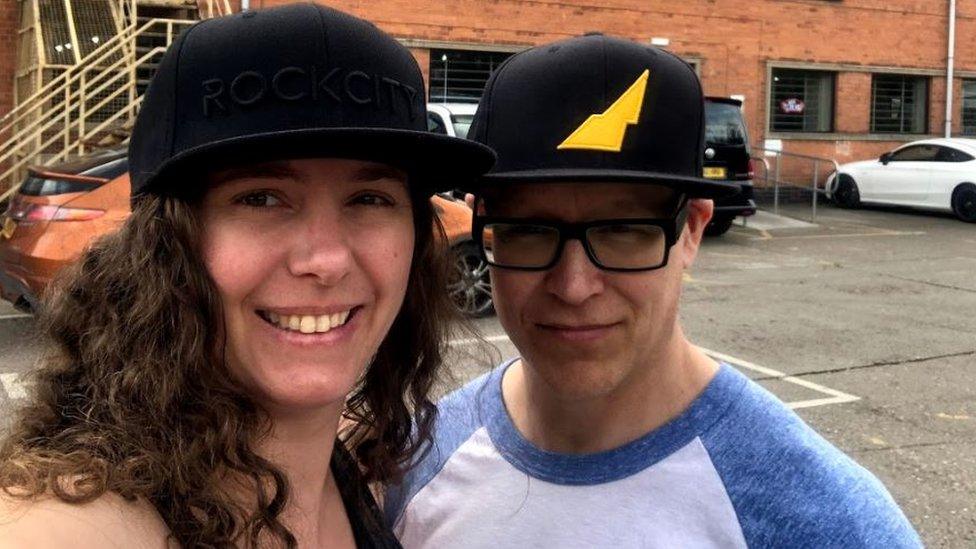
Jackie and Ian's partnership extends beyond the business world
It was while in prison that Ian was finally able to conquer his drug addictions. In an interview in 2013 he said that prison had been one of the happiest times of his life, because he was able to regain it, external.
After a year in jail, Ian was released to a halfway house in Boulder, Colorado. An old friend called Dan Howley who owned a gym in the city decided to give him a chance. And so Ian started doing odd jobs at the venue.
Eventually Dan gave Ian some foam to start carving climbing holds again, and slowly Ian's current business - Kilter Grips - came into existence.
Jackie Hueftle was also working at the same gym, and as a fellow climbing enthusiast she was impressed by the holds Ian was making, and so took on the marketing work.
She and Ian also started dating, despite her remembering his behaviour during his years as an addict, when at one point he had even stolen her car. "I reminded him of that, and he felt terrible," she says.
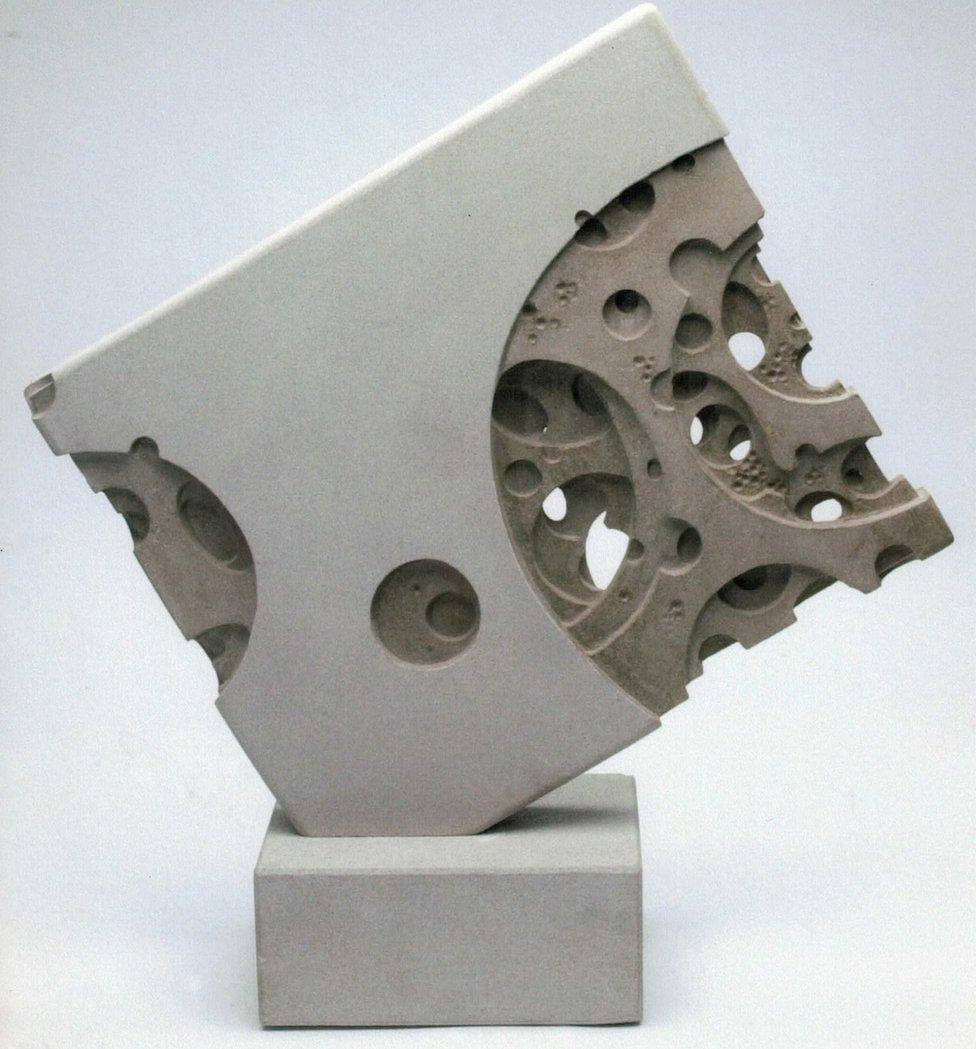
Ian Powell's sculptures still sell for tens of thousands of dollars
As sales of Kilter Grips' products grew, the business became a formal company in 2013.
Today it has annual sales of $2.5m (£2m), and Ian and Jackie remain both boyfriend and girlfriend, and business partners.
"Our partnership works well because he's the artist, and I'm the mellower one," says Jackie, 38.

More The Boss, external features:

Aman Anderson, the owner of Denver-based Beast Fingers Climbing, which makes training devices for climbers, says that Ian has been an important figure in the development of the climbing sector.
"In many ways Ian has always been at the forefront of climbing innovation and creating opportunities for other innovators," he says. "From his early start at eGrips, to now with Kilter Grips, he has shown many younger generations that the industry needs creators. Ian is a sculptor at heart."
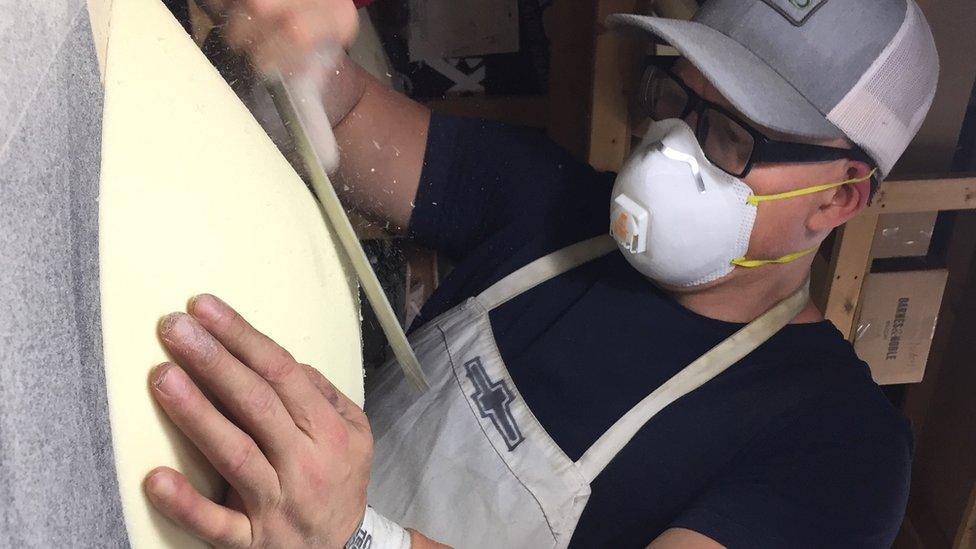
Ian Powell says he finds peace in his work
Ian designs his hand-crafted climbing holds at a studio in the barn at the back of his and Jackie's home in Boulder, spending hours, often at night.
"When I crashed my life I disappeared from the climbing world," he says. "Nobody knew where I was.
"But when I got clean and sober and wanted to come back, I was lucky, because most people - not everybody - but many people, welcomed me back."